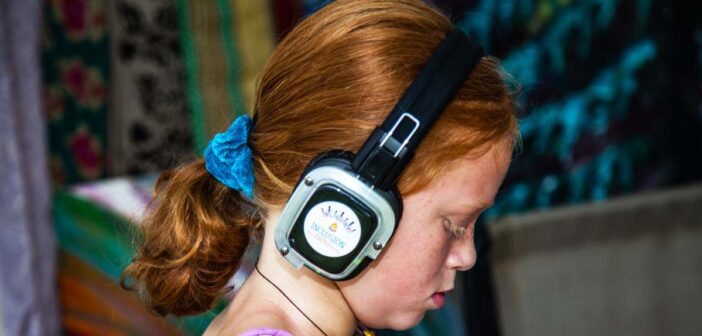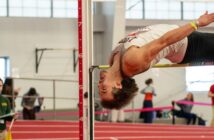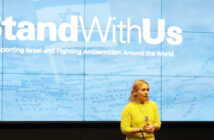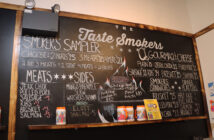In an area known for its mountainous terrain, it’s easy for the concept of accessibility to get lost among the hills of the Lehigh Valley.
Attorney Morgan Jones-Axtell, who specializes in health care and disability issues, wrote that living in a post-pandemic world, accessibility is more prevalent today than it has ever been before. From virtual classes to health care, the world had to learn how to adapt and make resources more easily available for those who need them.
Here’s how three Lehigh Valley organizations took accessibility to the next level by placing it at the forefront of their agendas.
The Lehigh Valley Arts and Cultural Alliance
The result of a merger between the Lehigh Valley Arts Council and the Cultural Coalition of Allentown, The Lehigh Valley Arts & Cultural Alliance advocates and supports all artists, regardless of background or disability.
Jacqui Schwartz, arts and accessibility manager for the alliance, organizes training and workshops to help community members learn how to incorporate accessibility and increase inclusivity in their programs.
For those with disabilities, attending concerts or festivals can be impossible due to sensory overload. Schwartz said when festivals incorporate safe spaces and fidget objects into their events, they engage a whole new audience that was previously overlooked.
“No matter who you are, there are things that you could consider in making your event more accessible,” Schwartz said.
In July 2023, the alliance hosted a celebration for those with disabilities along with Disability Pride PA, a statewide nonprofit organization that sponsors disability-focused workshops and events.
Located at The Pennsylvania State University Lehigh Valley extension in Center Valley, the event had live performances and visual art shows featuring artists with disabilities as well as American Sign Language translators.
“We really wanted a day for everybody to come out and to learn what they could do and how they can make their organizations more inclusive as well,” Schwartz said. “We just like to show what festivals and inclusive events can look like.”
However, Schwartz said that accessibility doesn’t stop outside of the arts.
She said there are all kinds of “invisible” things people can do to help increase accessibility, including no-cost assistance in everyday situations such as turning on captions when hosting a Zoom call.
The Lehigh Valley Center for Independent Living
The Lehigh Valley Center for Independent Living that helps match people with disability services.
Fatima Nabavian, the coordinator of accessibility and related programs for the center, joined the team in 2019 as a support coordinator for adults with autism before moving into her current role.
The center works alongside the Pennsylvania Assistive Technology Foundation and Tech Owl (Temple’s Institute of Disabilities) to provide free assistive technology, such as noise-canceling headphones, to those who require additional support but cannot afford it.
But their work doesn’t stop there.
In addition to the acquisition of equipment, the center also provides necessary services, which include demonstrations and training for the use of these devices.
“People might withdraw from social gatherings and environments to avoid that sensory overload, and we don’t want that,” Nabavian said. “So we need to make sure to have this assistive technology and these devices readily available.”
While loud environments can be triggering for those with sensory processing disorders, Nabavian said that incorporating assistive technology equipment like noise-canceling headphones can go a long way.
Nabavian said part of increasing accessibility to people with disabilities is making sure knowledge and information are easily accessible. The center sponsors training for those working with people who have disabilities, such as educating LANTA bus drivers on interactions and accommodations necessary for public services.
“Spreading awareness about freedom or accommodation, it’s not something that happens overnight, you don’t just become accessible,” Nabavian said. “It takes time for accessibility to be integrated into the forefront of planning for events and businesses — and it should be at the forefront.”
Nabavian, who grew up in the Lehigh Valley, says the area today is much more accessible than it was when she was a child. However, she said the Lehigh Valley could do more and take bigger steps.
“We still have some work to do in the initial planning phases of making sure that accessibility is in the conversation from the get-go throughout all nonprofit work,” Nabavian said. “But I feel like there’s really no limit to what we can do here.”
ArtsQuest
ArtsQuest works to provide access to art, culture and educational programs for all Lehigh Valley residents through events like Musikfest, an annual music festival held in Bethlehem over the summer.
Ryan Hill has been the senior director of programming for ArtsQuest since February 2011. Hill oversees ArtsQuest’s programming and festivals and works alongside the accessibility team to make sure the events are accessible for all Lehigh Valley residents.
“There are so many things that able-bodied people do not consider in their day-to-day lives that keep people with disabilities from being able to enjoy things that we take for granted,” Hill said.
In an effort to increase accessibility, the ArtsQuest Center has incorporated permanent ramped floors as well as ADA-accessible seating, elevators, restrooms, concession stands and bars.
ArtsQuest partners with Accessible Festivals, a company that works to ensure creative events are fully accessible for people with all disabilities.
Before Musikfest this year, ArtsQuest toured the venue with Accessible Festivals, as well as with an individual who is in a wheelchair and frequents MusikFest every year, to make sure the venue was fully accessible.
Jennifer LoConte, ArtsQuest director of communications, said the staff at ArtsQuest consistently works to achieve better, more accessible programs each year.
“We are really hands-on in that we break down what works or is successful, what doesn’t and what we could do better,” LoConte said.
For nearly 10 years, ArtsQuest has hosted an outdoor family movie night every Wednesday during the summer.
Since the showing at ArtsQuest’s Levitt Pavilion is not completely accessible, they show the same movie earlier in the afternoon in sensory-friendly cinemas. During these shows, the lights stay on and the volume is lower so it’s a safe place for children to self-stimulate — what the Child Mind Institute defines as a repetitive use of movements, speech or objects.
Hill hopes sponsoring accessible events like these will inspire programs in the Lehigh Valley to do the same. While the accessibility team at ArtsQuest hopes to serve as an example of accessibility, their work is far from over.
“We still have steps to take, and we will continue to do that,” Hill said. “This is an evolving conversation.”






Comment policy
Comments posted to The Brown and White website are reviewed by a moderator before being approved. Incendiary speech or harassing language, including comments targeted at individuals, may be deemed unacceptable and not published. Spam and other soliciting will also be declined.
The Brown and White also reserves the right to not publish entirely anonymous comments.
1 Comment
My disabled daughter’s, hearing loss, biggest complaint is that many people think she is unintelligent. Much needs to be done, especially these days, to give people respect, which should result from having another human in one’s presence.
Respect should be taught at home but increasingly is not. Schools may have to provide this service to children.
I applaud the efforts to assist the disabled in the arts and other areas. It seems like we are giving a child an expensive toy when what they wanted was some varied simple objects.